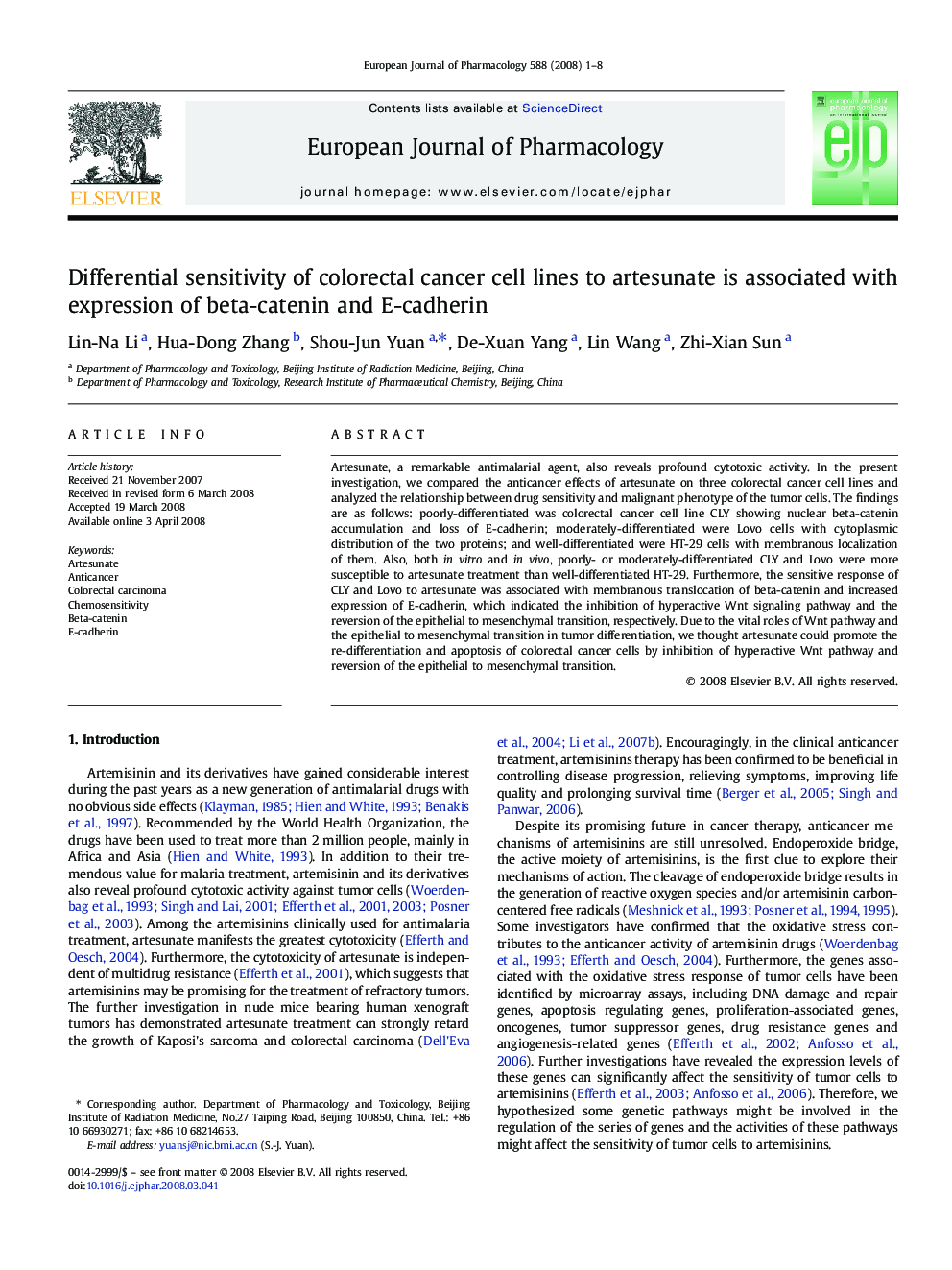| Article ID | Journal | Published Year | Pages | File Type |
|---|---|---|---|---|
| 2535059 | European Journal of Pharmacology | 2008 | 8 Pages |
Artesunate, a remarkable antimalarial agent, also reveals profound cytotoxic activity. In the present investigation, we compared the anticancer effects of artesunate on three colorectal cancer cell lines and analyzed the relationship between drug sensitivity and malignant phenotype of the tumor cells. The findings are as follows: poorly-differentiated was colorectal cancer cell line CLY showing nuclear beta-catenin accumulation and loss of E-cadherin; moderately-differentiated were Lovo cells with cytoplasmic distribution of the two proteins; and well-differentiated were HT-29 cells with membranous localization of them. Also, both in vitro and in vivo, poorly- or moderately-differentiated CLY and Lovo were more susceptible to artesunate treatment than well-differentiated HT-29. Furthermore, the sensitive response of CLY and Lovo to artesunate was associated with membranous translocation of beta-catenin and increased expression of E-cadherin, which indicated the inhibition of hyperactive Wnt signaling pathway and the reversion of the epithelial to mesenchymal transition, respectively. Due to the vital roles of Wnt pathway and the epithelial to mesenchymal transition in tumor differentiation, we thought artesunate could promote the re-differentiation and apoptosis of colorectal cancer cells by inhibition of hyperactive Wnt pathway and reversion of the epithelial to mesenchymal transition.
